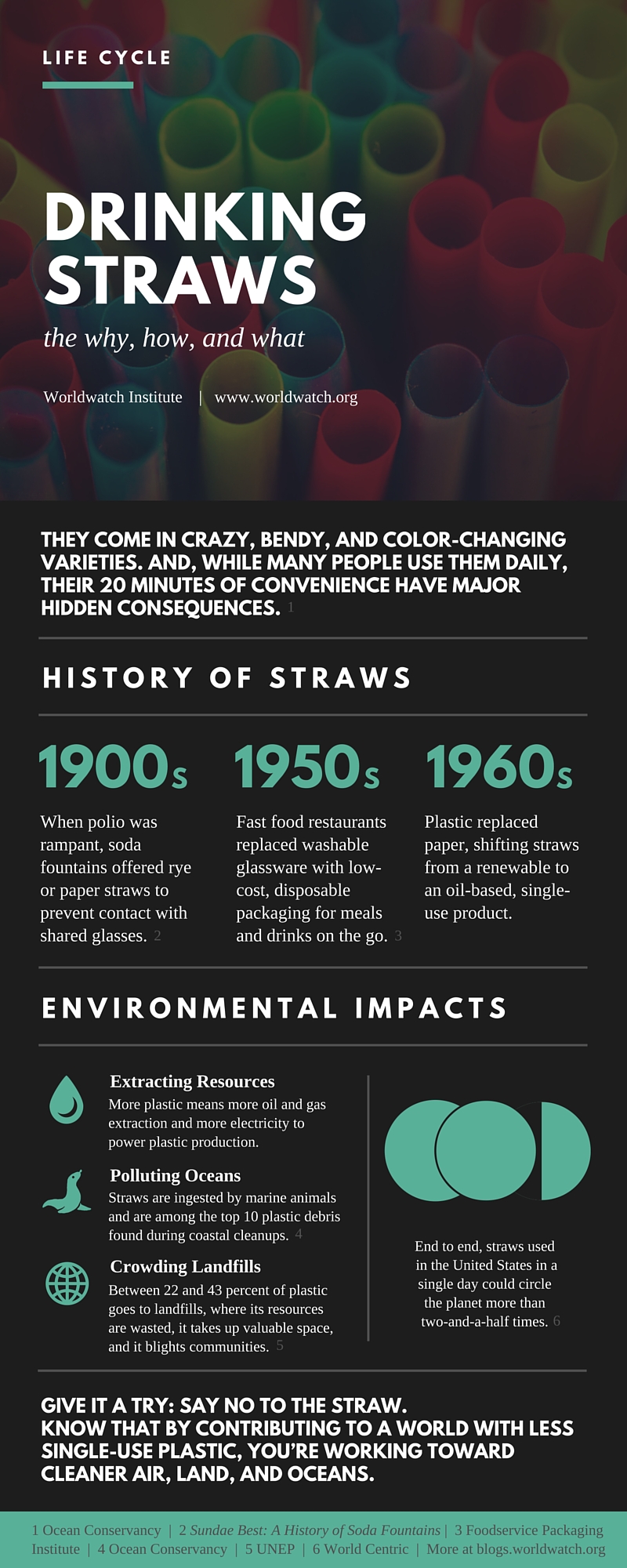Join the movement to eradicate the BILLIONS of straws trashed annually.
A small straw may not seem like a big problem, but when we look at our reliance on this petroleum based, single-use item from a global scale it becomes very apparent that this unnecessary habit poses a huge threat to the health of our planet.
Plastic is a substance the Earth cannot digest… Every bit of plastic that has ever been created still exists today, including the small amount that has been incinerated and has become toxic particulate matter.
– Plastic Pollution Coalition
Straw Warriors:
Straw Free Establishments:
Establishments Providing Compostable Straws by Request:
- 21 Steps | Kitchen + Bar
- Alta Bistro
- Amsterdam Pub
- Aura Restaurant
- Basalt Wine & Salumeria
- Brickworks Public House
- Buffalo Bills
- Cheaky’s Cafe
- Chic Pea Hut
- Christine’s
- Crystal Lounge
- Crystal Hut
- Cure Lounge
- Dusty’s Bar & BBQ
- Fairmont Chateau Whistler
- Fifi’s Bistro
- Fix Cafe
- Garfinkel’s
- Garibaldi Lift Co. Bar & Grill
- Glacier Creek Lodge
- Green Moustache Organic Juice & Live Food Bar
- Gone Village Bakery
- HandleBar Cafe and Apres
- Horstman Hut
- Hot Buns Bakery
- Hunter Gather
- Ingrid’s Village Cafe
- La Bocca
- La Cantina
- La Brasserie des Artistes
- Longhorn Saloon & Grill
- Maxx Fish
- Merlin’s Bar & Grill
- Milestones Restaurant
- Moguls Coffee House
- Mongolie Grill
- Mount Currie Coffee Company
- Nagomi Sushi
- Old Spaghetti Factory
- Olives Market
- Ollies Grilled Cheese Shack
- Peaked Pies
- Quattro at Whistler
- Raven’s Nest
- Rimrock Cafe
- Rendezvous Lodge
- Scandinave Spa
- Spark Kombucha
- Seppo’s Bar and Grill
- Steeps Grill and Wine Bar
- Stonesedge Kitchen
- Tapley’s Pub
- Tommy Africa’s
Straws consist of the petroleum bi-product polypropylene, basically the same stuff that fuels cars. Straws do not degrade naturally, and when they do break down they release harmful polluting toxins and degrade into tiny irretrievable pieces of plastic. Animals commonly mistake these small pieces of plastic for food.
Plastic products constitute more than 90% of all trash floating in the world’s oceans. Straws annually make it on the Ocean Conservancy’s Top 10 most collected items at beach cleanups.
Straws are not the only harmful single-use item, but they are a part of a gigantic problem. Remember that Every Choice Counts.
More Dirt on Plastic
(Source: Plastic Pollution Coalition)
Plastic never goes away. Plastic is a durable material made to last forever, yet illogically, 33 percent of it is used once and then thrown away. Plastic cannot biodegrade; it breaks down into smaller and smaller pieces.
Plastic spoils our groundwater. There are thousands of landfills in North America. Buried beneath each one of them, plastic leachate full of toxic chemicals is seeping into groundwater and flowing downstream into lakes and rivers.
Plastic attracts other pollutants. Manufacturers’ additives in plastics, like flame retardants, BPAs and PVCs, can leach their own toxicants. These oily poisons repel water and stick to petroleum-based objects like plastic debris.
Plastic threatens wildlife. Entanglement, ingestion and habitat disruption all result from plastic ending up in the spaces where animals live. In our oceans alone, plastic debris outweighs zooplankton by a ratio of 36-to-1.
Plastic piles up into the environment. North Americans discard more than 30 million tons of plastic a year. Only 8 percent of that gets recycled. The rest ends up in landfills, is incinerated, or becomes the invasive species known as ‘litter.’
Plastic poisons our food chain. Even plankton, the tiniest creatures in our oceans, are eating microplastics and absorbing their toxins. The substance displaces nutritive algae that creatures up the food chain require.
Plastic affects human health. Chemicals leached by plastics are in the blood and tissue of nearly all of us. Exposure to them is linked to cancers, birth defects, impaired immunity, endocrine disruption and other ailments.
Plastics cost billions to abate. Everything suffers: tourism, recreation, business, the health of humans, animals, fish & birds – because of plastic pollution. The financial damage continuously being inflicted is inestimable.
Personal Action
- Don’t be a sucker – say no to straws! When you order your drink say ‘No Straw Please‘
- Sign the Straw Wars petition HERE
- Support businesses who care about the health of our planet listed in the Straw Warriors section
- Spread the word!
Become a straw Warrior
- Join the Straw Wars movement by filling out the form below and eliminating straws from your establishment



